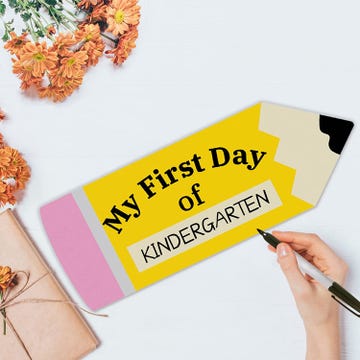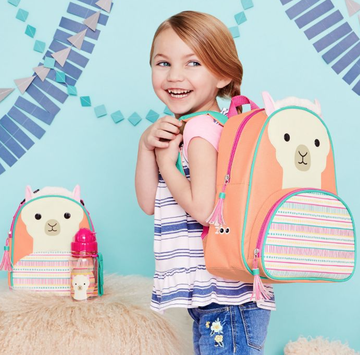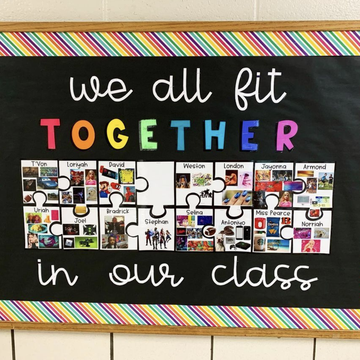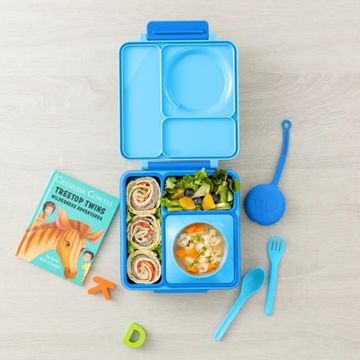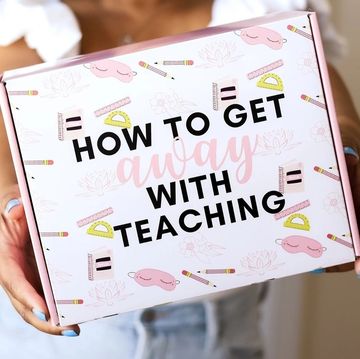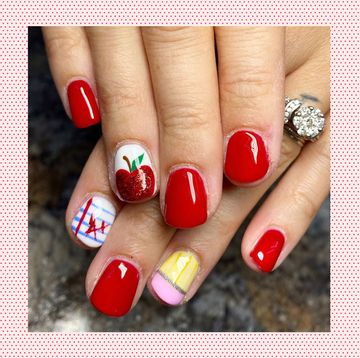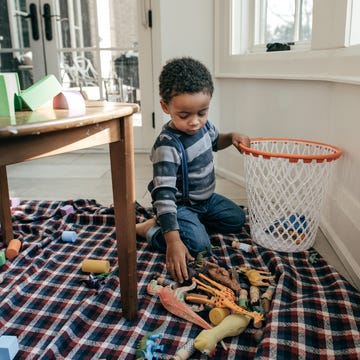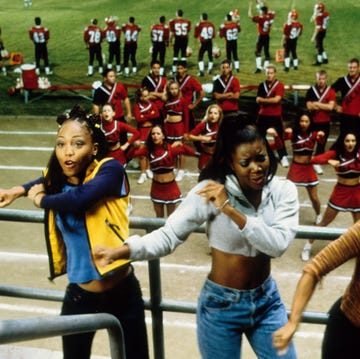Back-to-school season is here and with every new grade level comes a brand new set of questions surrounding what is or isn't appropriate for your kids. To help guide you, we sat down with two child psychologists, Susan Newman, Ph.D., author of The Book of No, and Julie Ross, M.A., executive director of Parenting Horizons and author of How to Hug a Porcupine: Negotiating the Prickly Points of the Tween Years.
Even though everyone parents differently, hopefully this expert advice will help inform you on the toughest decisions you might face this school year.
Experts say: For Newman, this one is a hard no: "As a general rule, multi-tasking (i.e. doing homework and watching TV simultaneously) diverts children's attention, completing an assignment takes longer, and the absorption of the information is less likely." Basically she thinks it's just an ineffective way to learn.
Ross, on the other hand, says it depends on the child. Ideally, she says the answer is no. But, "this is not to say that all children benefit from a perfectly quiet and isolated space to do homework. In fact, some kids are what I call 'social learners.'" Kids like this may prefer doing their homework in the "hub" of the home (a.k.a. the kitchen, living room, or wherever the majority of the family spends time).
Ultimately Ross suggests parents pay attention to their individual child's learning style and remember that the proof is in the results. "If your kid is putting in their best effort and getting results that reflect that in school, then whatever environment they prefer doing homework in is fine," Ross says.
Experts say: Newman acknowledges that for parents who are sports enthusiasts, having an athletic child is likely going to be important to them. "However, parents need to be cautioned against pushing a child into a sport or pushing a child too hard in a sport. In spite of our sports-obsessed culture, not every kid is or wants to be an athlete," Newman says.
Both experts emphasize that parents must also be willing to accept their child's definition of a sport. "A child should be allowed to pick a sport he likes, no matter how off-beat it may seem to the parent," Newman says.
"Some kids prefer biking to soccer, for example. Others may prefer dance to tennis," Ross says. As long as your kid is moving their body and staying healthy, Ross says parents should allow their child to engage in the type of physical activity they enjoy most.
Experts say: "Small choices for small people, big choices for big people," Ross says. This means when your child is a toddler, offer them a choice between the blue socks and the red socks when getting dressed for preschool. This ensures they'll end up in weather appropriate clothing.
When the kids are in middle and high school, Ross says they are perfectly capable of choosing their own clothing and should be encouraged to do so. "It's a safe way for them to show their individuality and to differentiate from parents and/or peers," Ross says.
Another reason to encourage your kids to dress themselves, according to Newman: "Choosing what to wear is another peg in honing a child's decision-making skills."
Experts say: There's a consensus on this one. "Children learn from face-to-face interactions — something you can't get from screens. They learn how to read emotions, build vocabularies, and bond with friends and family members," Newman says. "It's vital for children to have off-screen time clearly defined and follow through by parents."
Ross agrees and says that you should start out as young as possible limiting screen time: "That way a child lives within and grows up accepting that screen time limits are part of standard household protocol, rather than feeling like restrictive rules."
Experts say: This one's a trick question. The term "dating" isn't what it used to be, especially since technology has advanced to the stage of instant and frequent contact through texting, snapchat, and the like, Ross says. So kids as young as fifth grade can say they're "dating" someone, but the reality is, they just text a lot.
Ross suggests that rather than assign an arbitrary grade or age, parents should engage their children in on-going discussions about relationships — like the difference between friendship and romance or the challenges of engaging in an intimately romantic relationship before you're ready.
"Then, because it's an open dialogue, the decision about going out with someone will be arrived at more organically, with both parent and child feeling comfortable," Ross says.
Experts say: Ross believe that grades are in no way a prediction of a child's success. "Two things that are more predictive for success in adulthood are a love of learning and the willingness to work hard at something," Ross says.
However, parents should be mindful of the grades their children are getting, because it could signal a larger problem. "How well a child does academically tends to correspond closely to his or her self-esteem and confidence," Newman says.
Experts say: Newman and Ross have slightly varying opinions on this one. Ross says it should be decided together. "Kids are more likely to respect a decision that they collaborated on instead of a decision that is imposed on them, especially at an age where they are developing a need to feel independent," Ross says.
However, Newman says a child's desire to wear makeup usually depends on the habits of their mother and peers. But, ultimately, the choice is up to the parent: "If you are opposed to your daughter wearing makeup, a parent can exercise her prerogative and not give in to the begging."
Experts say: It's never a bad thing to know where your kids are and when they're going to be home. "Curfews encourage responsibility and respect for parents and time," Newman says.
Because teenagers are still developing their brains, they are prone to risk-taking, Newman says. So by insisting on a curfew, parents can limit both their worries and whatever danger their kids could get into.
Not convinced? Newman says to look at curfew this way: "When your child asks to stay out later after giving a solid reason, and you say yes, you become a hero."
Alexis Jones is an assistant editor at Women's Health where she writes across several verticals on WomensHealthmag.com, including life, health, sex and love, relationships and fitness, while also contributing to the print magazine. She has a master’s degree in journalism from Syracuse University, lives in Brooklyn, and proudly detests avocados.









